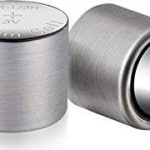In today’s highly competitive agricultural landscape, staying ahead of the competition is crucial for farmers and agricultural businesses. One key factor that can give them an edge is leveraging Laboratory Information Management Systems (LIMS) to drive efficiency across their operations. LIMS-driven efficiency allows farmers to streamline their processes, enhance data management and make informed decisions based on accurate and timely information. Agricultural operations often involve numerous laboratory tests, ranging from soil analysis and water quality testing to plant tissue analysis and pesticide residue detection. These tests generate a vast amount of data that needs to be organized, tracked and analyzed effectively. LIMS provides a centralized platform for managing all laboratory-related information, including sample tracking, test results and associated documentation. By digitizing and automating these processes, LIMS eliminates manual paperwork, reduces the risk of errors and improves overall data integrity.

With LIMS, farmers can significantly enhance the efficiency of their operations. They can easily schedule and track laboratory tests, ensuring samples are processed in a timely manner. LIMS automates sample registration, barcode labeling and tracking, minimizing the chances of sample mix-ups or loss. This saves time and effort for farmers, allowing them to focus on other critical tasks. Furthermore, LIMS offers real-time access to test results and data analytics, empowering farmers to make informed decisions promptly. By leveraging advanced data visualization tools, farmers can gain valuable insights into their agricultural practices, identify trends and optimize their production processes. For example, analyzing soil test results over time can help farmers adjust their fertilization strategies, leading to improved crop yields and resource utilization. Similarly, monitoring water quality data can assist in making irrigation decisions, preventing crop damage due to inadequate or excessive water supply.
In addition to streamlining laboratory operations and data management, LIMS enables better traceability and compliance with regulations and quality standards and have a peek at these guys https://atlab.com/industries/agriculture-farming-lims/. With robust tracking capabilities, farmers can easily trace the origins of their products, maintain accurate records and demonstrate compliance with safety and quality requirements. This enhances transparency and instills confidence in consumers, which can be a significant competitive advantage in the marketplace. In conclusion, in the fast-paced and competitive world of agriculture, leveraging LIMS-driven efficiency is crucial for farmers and agricultural businesses to stay ahead of the competition. By streamlining laboratory processes, improving data management and facilitating informed decision-making, LIMS empowers farmers to optimize their production practices, enhance traceability and comply with industry regulations. Embracing LIMS technology not only improves operational efficiency but also enhances competitiveness, ensuring long-term success in the agriculture industry.


